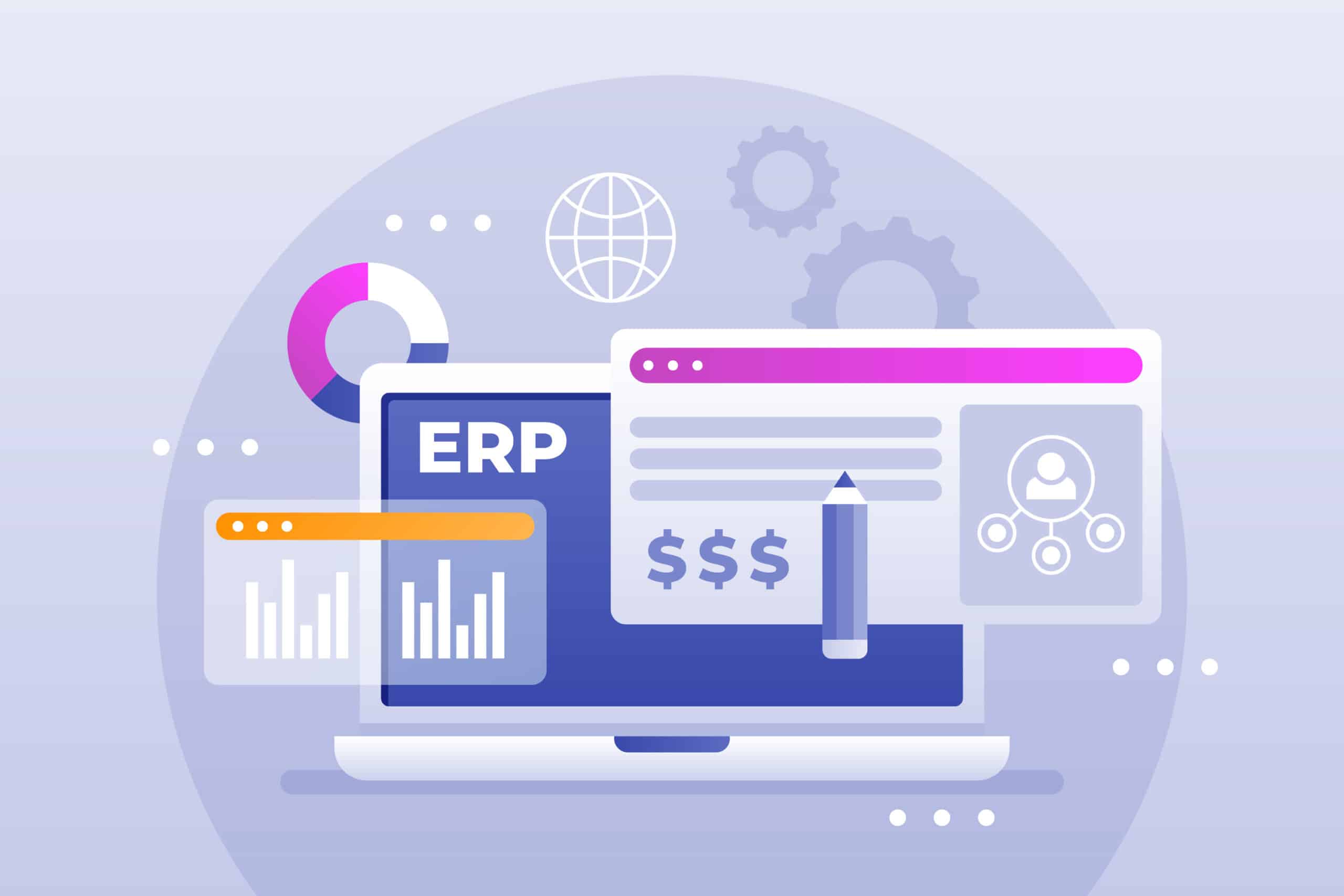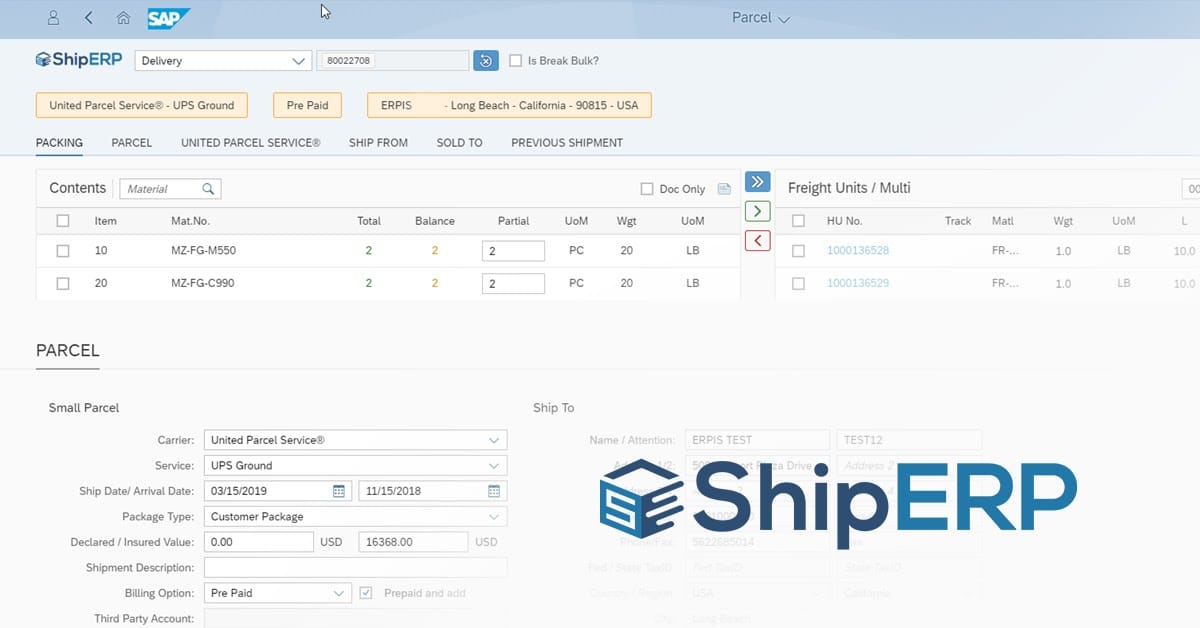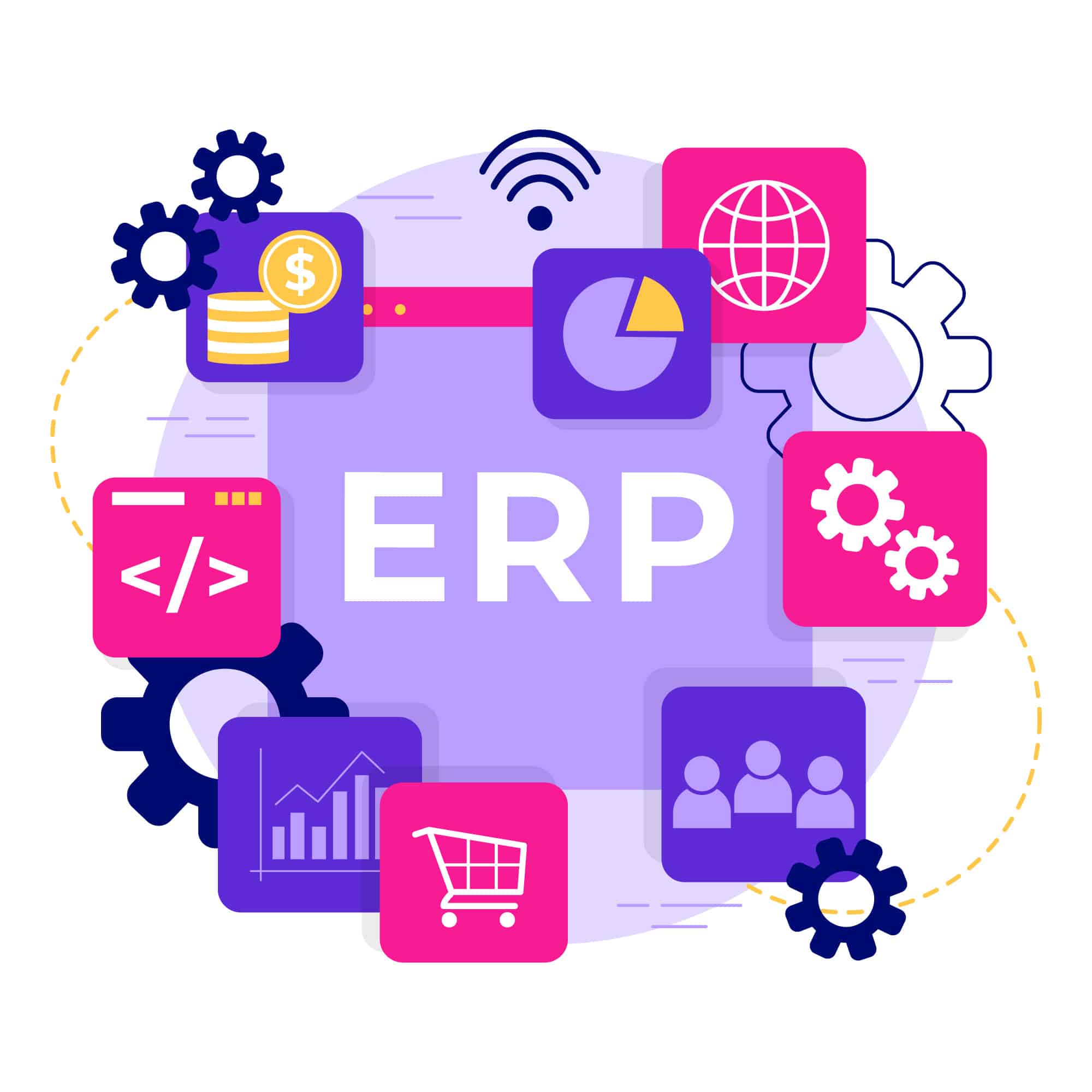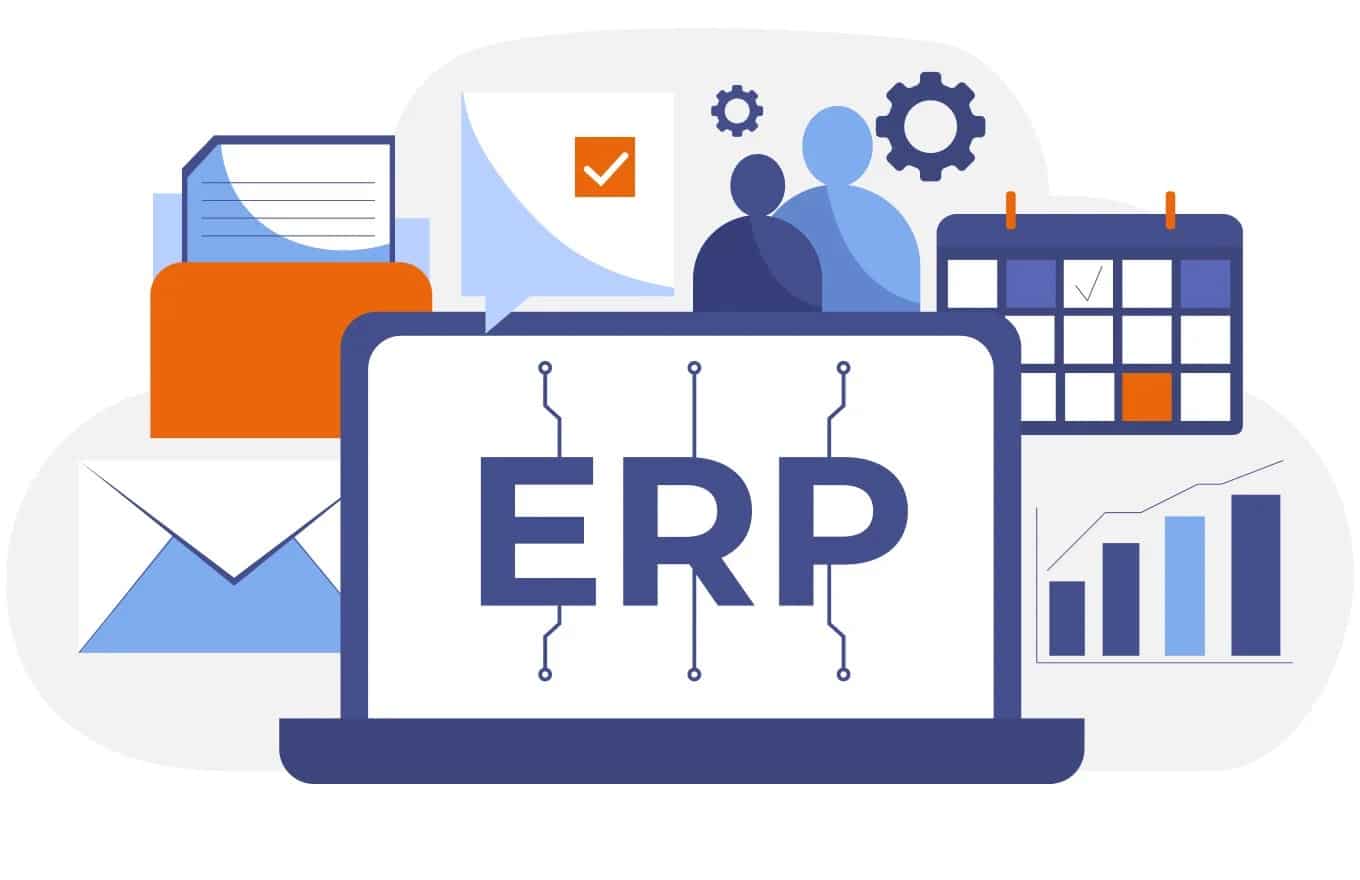In today’s fast-paced financial industry, efficient management of operations is crucial for success. This is where ERP software comes into play. ERP, or Enterprise Resource Planning, is a comprehensive software solution that integrates various business processes within an organization, enabling seamless communication and data flow. When it comes to the financial sector, ERP software specifically designed for this industry can bring significant benefits and streamline operations like never before.
So, why is ERP software so important in the financial sector? Well, imagine trying to manage multiple financial processes manually – from accounting and budgeting to cash flow management and regulatory compliance. It would undoubtedly be a time-consuming and error-prone endeavor. This is where ERP software steps in, automating and centralizing these processes into a single, integrated system.
By implementing ERP software tailored for the financial sector, financial institutions can enjoy a plethora of benefits. For starters, it allows for real-time visibility and access to critical financial data. With just a few clicks, you can retrieve accurate financial information, analyze it, and make informed decisions promptly. This not only saves time but also enhances decision-making accuracy, enabling you to stay ahead in today’s competitive market.
Moreover, ERP software for the financial sector offers robust financial reporting capabilities. You can generate comprehensive reports, financial statements, and forecasts effortlessly, providing valuable insights into your organization’s financial health. This empowers you to identify trends, opportunities, and potential risks, enabling proactive financial management.
Additionally, ERP software ensures compliance with financial regulations and data security standards. Financial institutions handle sensitive customer information and must adhere to strict regulations. ERP software provides built-in security measures, such as access controls and encryption, to safeguard data. It also helps streamline compliance processes, ensuring that your organization remains compliant with the ever-changing regulatory landscape.
In conclusion, ERP software designed for the financial sector is a game-changer in streamlining financial operations. It allows for seamless communication, automates processes, provides real-time visibility, and enhances decision-making accuracy. By implementing ERP software, financial institutions can stay competitive, improve operational efficiency, and ensure compliance with financial regulations. Stay tuned to discover the key features and benefits of ERP software for the financial sector in the upcoming sections.
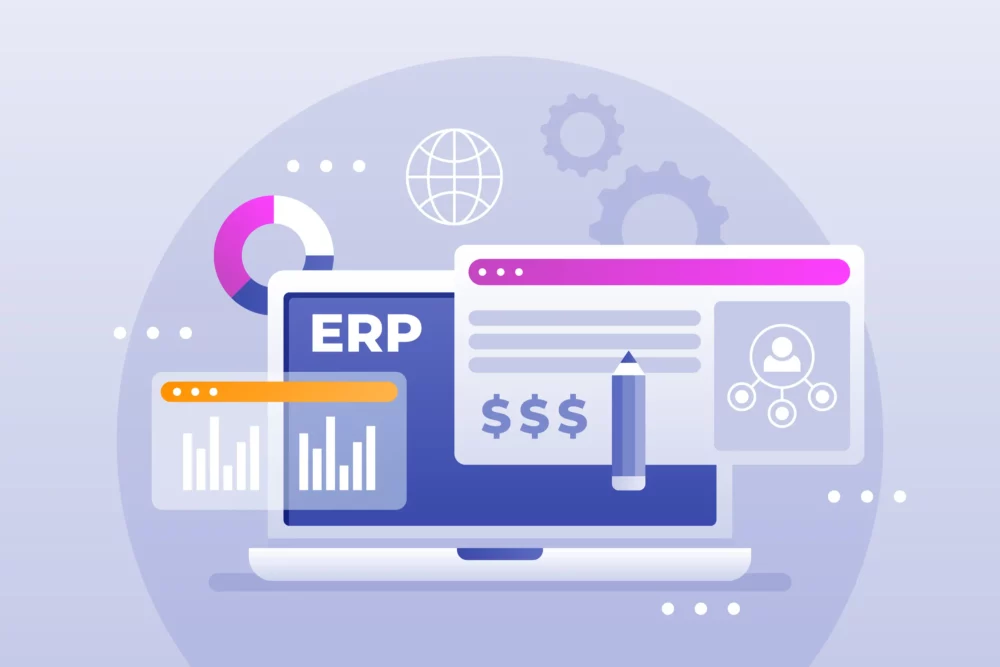
Understanding ERP Software for the Financial Sector
What is ERP Software?
ERP software, short for Enterprise Resource Planning, is a comprehensive solution that integrates and manages various business processes within an organization. It serves as a centralized platform that connects departments, streamlines data flow, and enhances collaboration. In the context of the financial sector, ERP software specifically caters to the unique needs and challenges faced by financial institutions.
Role of ERP Software in Managing Financial Operations
ERP software plays a vital role in managing financial operations efficiently. It offers a wide range of functionalities designed to streamline financial processes, improve accuracy, and enhance decision-making. Some key areas where ERP software makes a significant impact include:
1. Accounting and Financial Management
ERP software provides robust accounting capabilities, allowing financial institutions to automate and streamline their financial processes. From general ledger management and accounts payable/receivable to budgeting and forecasting, ERP software ensures accurate and up-to-date financial data.
2. Cash Flow Management
Managing cash flow effectively is crucial for financial institutions. ERP software helps track cash inflows and outflows, automates payment processes, and provides real-time insights into cash positions. This enables better cash flow management and reduces the risk of liquidity issues.
3. Regulatory Compliance
Compliance with financial regulations is a top priority for financial institutions. ERP software helps ensure compliance by integrating regulatory requirements into processes, automating compliance checks, and generating reports required by regulatory authorities.

Specific Needs and Challenges of the Financial Sector
The financial sector has unique needs and challenges that ERP software addresses. These include:
1. Data Security and Privacy
Financial institutions handle sensitive customer data and must comply with strict security and privacy regulations. ERP software offers advanced security features, such as user access controls, encryption, and data backup, to protect sensitive information.
2. Complex Reporting and Analysis
Financial institutions require complex reporting and analysis capabilities to monitor financial performance, identify trends, and make informed decisions. ERP software provides powerful reporting tools and customizable dashboards to generate comprehensive financial reports and perform in-depth analysis.
3. Integration with External Systems
Financial institutions often rely on various external systems, such as banking platforms and payment gateways. ERP software enables seamless integration with these systems, ensuring smooth data exchange and eliminating manual data entry.
In the next section, we will delve deeper into the key features and benefits of ERP software tailored for the financial sector. Stay tuned to discover how ERP software can revolutionize financial operations in your organization.
Key Features and Benefits of ERP Software for the Financial Sector
Streamlining Financial Processes with Tailored Features
In the fast-paced financial sector, efficiency is crucial. ERP software tailored for the financial industry offers a range of essential features that streamline financial processes, saving you time and effort.
1. Integrated Financial Management: ERP software brings all financial operations under one roof, integrating functions such as budgeting, accounting, and financial reporting. This centralized approach eliminates the need for multiple software solutions, reducing complexity and improving workflow efficiency.
2. Automated Workflows: Manual data entry and repetitive tasks can be time-consuming and error-prone. ERP software automates workflows, reducing human error and ensuring accurate and consistent data across financial processes. From invoice processing to expense management, automation simplifies tasks and improves efficiency.
3. Real-time Financial Insights: ERP software provides real-time visibility into financial data, allowing you to monitor key performance indicators, track financial trends, and make data-driven decisions promptly. With up-to-date information at your fingertips, you can respond swiftly to market changes and optimize financial strategies.

Enhancing Decision-making Accuracy and Efficiency
In the financial sector, accurate and timely decision-making is crucial for success. ERP software offers a range of features that enable better decision-making, empowering you to stay ahead of the competition.
1. Advanced Analytics and Reporting: ERP software for the financial sector offers robust analytics and reporting capabilities. With customizable dashboards and comprehensive reports, you can gain deep insights into financial performance, identify trends, and make informed decisions. From profitability analysis to cash flow forecasting, advanced analytics support strategic decision-making.
2. Compliance and Risk Management: Managing compliance and mitigating risks are top priorities in the financial sector. ERP software helps ensure regulatory compliance by automating compliance processes, maintaining audit trails, and generating reports. It also provides risk management tools, allowing you to identify and address potential risks, ensuring financial stability.
3. Scalability and Flexibility: As your financial institution grows, ERP software scales with your business needs. With flexible features and modules, you can adapt the software to meet evolving requirements. Whether you expand into new markets or introduce new financial products, ERP software provides the scalability and flexibility necessary to support your growth.
In conclusion, ERP software tailored for the financial sector offers a range of key features and benefits. From streamlining financial processes and improving operational efficiency to enhancing decision-making accuracy and ensuring compliance, ERP software empowers financial institutions to thrive in a competitive landscape. In the next section, we will delve into the process of choosing the right ERP software for financial institutions.
Choosing the Right ERP Software for Financial Institutions
Factors to Consider When Selecting ERP Software
When it comes to choosing the right ERP software for financial institutions, there are several important factors to consider. Making an informed decision ensures that the software aligns with your organization’s unique needs and sets the stage for successful implementation. Here are some key factors to keep in mind:
1. Scalability
Financial institutions often experience growth and expansion over time. Therefore, it is crucial to choose an ERP software that can scale alongside your organization. Consider the software’s ability to handle increasing data volumes, accommodate additional users, and support new business processes. Scalability ensures that your ERP system grows with your institution, avoiding the need for costly software replacements down the line.
2. Security
As financial institutions handle sensitive customer data, security is of paramount importance. Ensure that the ERP software you choose adheres to robust security standards. Look for features such as role-based access controls, data encryption, and regular security updates. Additionally, consider the software vendor’s reputation for data security and their compliance with industry regulations.
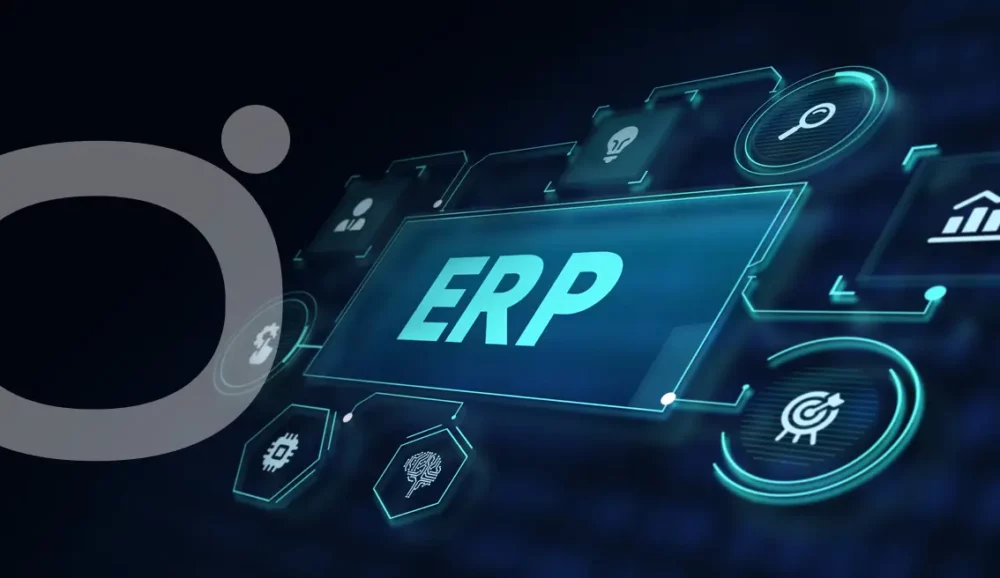
Specific Considerations for Financial Institutions
Apart from the general factors mentioned above, financial institutions have unique needs that require specific considerations when selecting ERP software. Here are some additional points to keep in mind:
1. Integration Capabilities
Financial institutions typically have multiple systems and applications in place, such as banking platforms, CRM software, and payment gateways. It is essential to choose an ERP solution that seamlessly integrates with these existing systems. Integration capabilities ensure smooth data flow between systems, minimizing manual data entry and maximizing efficiency.
2. Compliance Requirements
Financial institutions operate in a highly regulated environment. Therefore, it is crucial to select an ERP software that can handle the complex compliance requirements of the financial industry. Look for features like audit trails, regulatory reporting templates, and automated compliance checks. Ensure that the software vendor stays up-to-date with the latest regulatory changes and provides regular updates to address compliance needs.
In conclusion, selecting the right ERP software for financial institutions requires careful consideration of factors like scalability, security, integration capabilities, and compliance requirements. By evaluating these aspects and choosing a software solution that aligns with your organization’s needs, you can ensure a smooth implementation and maximize the benefits of ERP in streamlining your financial operations. Stay tuned to explore real-life case studies of successful ERP software implementation in financial institutions.
Case Studies: Successful Implementation of ERP Software in Financial Institutions
Real-Life Examples of Successful ERP Implementation
When it comes to implementing ERP software in financial institutions, real-life examples can offer valuable insights and demonstrate the potential benefits. Let’s explore some success stories of financial institutions that have effectively implemented ERP software and reaped the rewards.
XYZ Bank: Streamlining Financial Operations
XYZ Bank, a leading financial institution, faced the challenge of managing their diverse financial operations efficiently. They decided to implement ERP software tailored for the financial sector to streamline their processes. By integrating their accounting, budgeting, and cash flow management systems, XYZ Bank achieved a centralized and automated approach to financial management.
The benefits were remarkable. With real-time visibility into financial data, XYZ Bank’s decision-makers gained access to accurate information, enabling them to make informed decisions promptly. The automation of financial processes resulted in increased efficiency, reduced manual errors, and significant time savings.
ABC Insurance: Enhancing Regulatory Compliance
Compliance with regulatory standards is a top priority for financial institutions, and ABC Insurance recognized the need for a robust solution. They implemented ERP software specifically designed for the financial sector, which offered built-in compliance features and data security measures.
By centralizing their financial data and implementing standardized processes, ABC Insurance improved their compliance efforts. The ERP software ensured adherence to industry regulations, such as HIPAA and GDPR, by implementing access controls, encryption, and audit trails. As a result, ABC Insurance not only achieved regulatory compliance but also enhanced their reputation as a trusted financial institution.
Measurable Outcomes and Benefits
The success of ERP software implementation in financial institutions can be measured through tangible outcomes and benefits. Let’s take a closer look at some of these measurable results.
Cost Savings and Efficiency Improvements
Financial institutions that implemented ERP software experienced significant cost savings and efficiency improvements. By automating manual processes, streamlining workflows, and reducing errors, these institutions were able to allocate resources more effectively and focus on strategic initiatives. For example, manual data entry and reconciliation tasks were replaced by automated processes, saving time and reducing labor costs.
Enhanced Decision-Making and Reporting
ERP software provides financial institutions with powerful reporting and analytics capabilities, enabling them to make data-driven decisions. With real-time access to accurate financial data, decision-makers can analyze trends, identify opportunities, and mitigate risks effectively. The ability to generate comprehensive reports and forecasts empowers financial institutions to stay ahead of the competition and adapt to market changes swiftly.

Improved Customer Satisfaction
Implementing ERP software in financial institutions often leads to improved customer satisfaction. With streamlined processes and efficient handling of financial transactions, customers experience faster response times, accurate billing, and enhanced security. This fosters trust and loyalty, ultimately contributing to the growth and success of the financial institution.
In conclusion, real-life case studies demonstrate the successful implementation of ERP software in financial institutions. These examples highlight the challenges faced, benefits gained, and measurable outcomes achieved. Stay tuned as we delve deeper into the key features and benefits of ERP software for the financial sector in the upcoming sections.
Conclusion
In today’s rapidly evolving financial sector, staying ahead requires efficient management of operations and leveraging cutting-edge technology. ERP software specifically designed for the financial sector provides the solution to streamline financial processes and drive success. The main keyword, “software de gestión erp para el sector financiero,” encapsulates the essence of this transformative technology.
By implementing ERP software in financial institutions, organizations can unlock a myriad of benefits. From automating processes and centralizing data to providing real-time visibility and enhancing decision-making accuracy, ERP software empowers financial institutions to thrive in a competitive landscape. It offers robust financial reporting capabilities, enabling comprehensive analysis and forecasting to drive informed decision-making.
One critical aspect that cannot be overlooked is compliance with financial regulations and data security standards. ERP software for the financial sector incorporates built-in security measures and streamlines compliance processes, ensuring data protection and adherence to regulatory requirements.
In conclusion, embracing ERP software tailored for the financial sector is essential for organizations looking to optimize their financial operations. By leveraging this technology, financial institutions can achieve operational efficiency, gain a competitive edge, and ensure compliance with regulatory frameworks.
To unlock the full potential of ERP software for the financial sector, explore the comprehensive solutions offered by control.vdict.pro. With our expertise and industry-leading software, you can revolutionize your financial operations and drive success in the ever-evolving financial landscape. Contact us today and embark on a transformative journey towards streamlined financial management.

